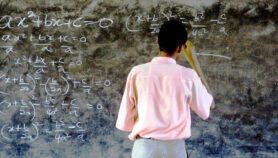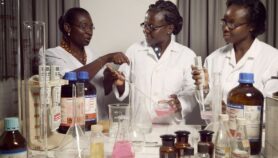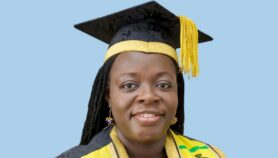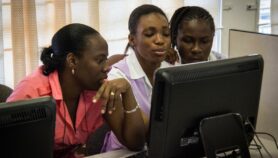Send to a friend
The details you provide on this page will not be used to send unsolicited email, and will not be sold to a 3rd party. See privacy policy.
A special focus in Science reports on the varying approaches to university science teaching around the world.
In Brazil, Antonio Carlos Pavao, a theoretical chemistry teacher at the Federal University of Pernambuco in northeastern Brazil, believes that science teachers in Brazil need to be more resourceful.
Teachers specialising in science, technology, engineering and mathematics are in short supply and must cope with poor teaching conditions and low wages.
In 2003, Brazilian 15-year-olds ranked the lowest of 41 countries in mathematics, and fortieth in science, and up to 40 per cent of students enrolling in Pavao’s university drop out after the first semester.
Pavao is trying to alter the admission process, providing pre-entry science courses to equip students with the basic knowledge and skills they lack. He calls for more experienced professors to teach so that every Brazilian child has the opportunity to experience the wonders of science.
In China, Yun Ying, a semi-retired professor of physics education at the Southeast University of Nanjing is convinced students must learn English and do work on their own initiative, rather than just memorise material.
Yun has produced a course — adopted by ten Chinese universities — teaching first-year university students the English they need to discuss physics, as well as requiring them to research, present and debate a physics topic.
University enrolments in China increased sevenfold between 1998 and 2005 to 21 million students. Yun’s efforts are part of a bigger movement to reform China’s university education system, where teaching methods and course content — especially in science and technology — are often outdated and emphasise memorisation over creative thinking.
India and South Africa are also highlighted in the Science focus on undergraduate science education.
Links to full articles in Science:
Brazil
China
India
South Africa













